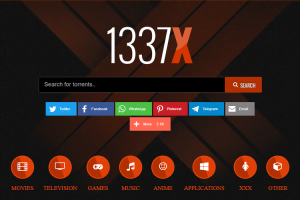PBX vs VoIP – PBX (public branch exchange) requires a dedicated network to receive and make calls, while VoIP (Voice over Internet protocol) requires Internet connection to make calls.
We’ve gone so far as a species, and the leaps and bounds of technological growth we have collectively achieved are mind-blowing. Nowadays, it’s easier than ever before to indulge in one’s favorite pastimes. A proliferation of new tech gadgets and smartphones have made these hobbies accessible to virtually everyone. When it comes to business, technological advancements regarding phone systems have revolutionized communications, and that’s why selecting the appropriate one is very important for smooth business operations.
If to speak about choosing a sound phone system for one’s company, people will find their choices narrowed down to two alternatives, each with their ups and downs, namely VoIP and PBX. They come with a lot of noteworthy features. However, it’s often difficult to delve deep into the finest details of what makes each stand out.
VoIP vs PBX – What are the benefits?
To help you work out such an important decision for your business, here is the answer to “What is the difference between VoIP and PBX?” And, of course, a few insights into how VoIP PBX works! Read on to get to the core of what makes each system unique in order to educate yourself and make an informed decision on whether VoIP and PBX are the right options for you and your business!
Connection Protocols
If we were to narrow down the differences between VoIP and PBX, it would likely come to how each system connects its users, not the much-talked-about “VoIP PBX features.”
A PBX system is a small telephone network that uses your standard telephone lines for incoming and outcoming calls. It often requires a computer server, a manual control board, and multiple lines for connecting to the public network.
A VoIP system, on the other hand, makes use of a much simpler method that transfers analog voice data over the internet, thus requiring you to be connected.
Equipment Options
Another essential point of difference between VoIP and PBX are the options for complementary equipment you get out of each one. That is to say that, essentially, the core difference lies in VoIP PBX hardware.
As we explained above, traditional PBX uses analog lines for corded or cordless phones or even headphones for a more “hands-free” solution.
However, VoIP, being a digital means, offers more hardware that may be connected to its system and any computer within it.
It allows you to use an IP or wireless phone to connect to the internet, and some VoIP systems even allow you to receive calls directly from your computer.
Configuration
When it comes to how many calling features each system is equipped with, VoIP once more seems to take the edge in the VoIP vs PBX comparison debate. Being computer-based, VoIP is straightforward to configure and reconfigure according to user preferences.
No matter if you are using Skype or an enterprise-sized software, you can make changes to the interface, even if you are not an expert, as long as you have an internet connection.
You can use VoIP services to transfer calls to multiple numbers or one number under specific conditions like the time, day of the week, or incoming number.
Performance
However, if to speak about how each system performs, VoIP seems to take a hit as your internet connection’s bandwidth primarily limits it. Similarly, a larger number of people connected at once will drain your bandwidth, further decreasing your calls’ quality.
That is to say, many calls are made using VoIP-involved external factors (that, most of the time, are not going to be under the control of the user). This can be understandably frustrating.
PBX, on the other hand, is used by a single company, making for much more stable quality in every call.
So, as you can understand, VoIP PBX connection plays a significant role in the systems’ performance. This a factor you should definitely take into consideration when you decide which option to choose.
Costs
Now that we know the pros and cons of both VoIP and PBX, how much they weight in your wallet?
Due to how little infrastructure is involved in operating a VoIP system, it tends to be cheaper, as you only need VoIP-enabled phones and a computer. The added benefit of having monthly bills less costly and more simplified is that you no longer have to pay for phone and internet services separately.
PBX comes with a series of hardware requirements and charges its services separately, making it much more expensive.
VoIP and PBX: Final Words
Choosing between a VoIP and PBX system is a matter of realizing what is more important for your needs. If you don’t mind paying more for fewer features, but the more consistent quality of every call, PBX is undoubtedly the one to go for. However, if you run the type of business that would benefit from having a more cost-effective system with various features for your users, there is no better choice than VoIP.
Of course, you can always take on the testimony of other companies. Are you familiar with VoIP PBX implementation? Or VoIP PBX open source? If so, what would you say to someone who asks, “VoIP PBX best?” Let us know in the comments!


